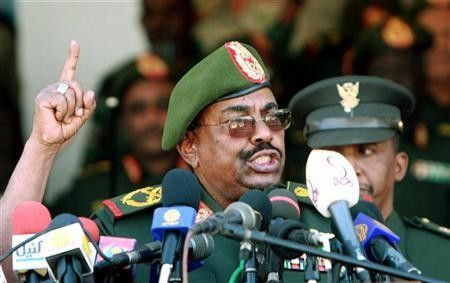Airstrikes pound Sudanese border

Well, that didn't last long.
Less than a day after North and South Sudanese leaders announced an agreement to demilitarize the disputed region of Abyei, fighting has reignited along the tumultuous north-south border. Sudanese jets shelled the state of South Kordofan in Northern Sudan. The bombings, according to the United Nations, were directed at pro-Southern groups living in the northern state.
South Kordofan and Abyei, along with the southern Unity state, have been the sites of multiple military clashes between the two governments in the past month. The ferocious border dispute is occurring just weeks before South Sudan is set to gain its independence.
We are extremely concerned about the bombing campaign, which is causing huge suffering to the civilian population and endangering humanitarian assistance, Kouider Zerrouk, spokesman for the UN Mission in Sudan, told Agence France Presse.
The intensive bombing by SAF [Sudanese Armed Forces, northern army] in the past week is continuing in Kadugli and Kauda, where jet fighters dropped 11 bombs at 10.30 this morning, apparently targeting an airfield, he added.
The bombing campaign has reportedly displaced 40,000 Sudanese civilians. This adds to the 100,000 Sudanese who fled the earlier fighting in Abyei and surrounding areas.
We reiterate our call on the SAF, the SPLA and other armed groups who are involved in this conflict to allow immediate access to humanitarian agencies, stop military attacks against civilians and respect and protect them in accordance with international law, Zerrouk said.
[North Sudan's] immediate withdrawal is critical if there is to be any chance for a sustainable solution in the troubled territory itself, but also to prevent Africa's largest country from plunging back into war and spoiling South Sudan's long awaited independence -- now just one month away, the Brussels-based International Crisis Group said yesterday in a statement.
Last month, North Sudanese troops assumed control of the oil-rich region of Abyei, located in the middle of the ill-defined border.
After a two-day conference in Addis Ababa that ended yesterday, President Omar al-Bashir said he would withdraw troops from the area and allow Ethiopian peacekeepers to control security. While the informal settlement was a good step toward a peaceful resolution, no definitive plan of action or time-frame has been established.
Some international organizations fear that the recent attacks are ethnically driven. Most of the country's 56-year history has been plagued by ethnic and civil war. According to the United Nations, the bombing was aimed at the indigenous Nuba people. The Nubans, who live in the Northern state of South Kordofan, fought with South Sudan's People's Liberation Army in the 1983-2005 civil war.
People are being hunted down for their ethnicity, Sudan Ecumenical Forum advisor John Ashworth told the BBC's Focus on Africa.
Rabbie Abdelattif Ebaid, an adviser to Sudan's information minister, denied that the strikes were ethnically-based, saying that the government was targeting rebel fighters in the area.
Human Rights Watch, meanwhile, is accusing the Sudanese government of widespread injustices, claiming that President al- Bashir's forces are going house-to-house in Southern Kordofan to search for and execute anyone loyal to the Southern state.
The Sudanese government denied these claims.
We don't chase civilians, army spokesman Al-Sawarmi Khaled said Tuesday. We are only fighting the rebels.
© Copyright IBTimes 2024. All rights reserved.




















